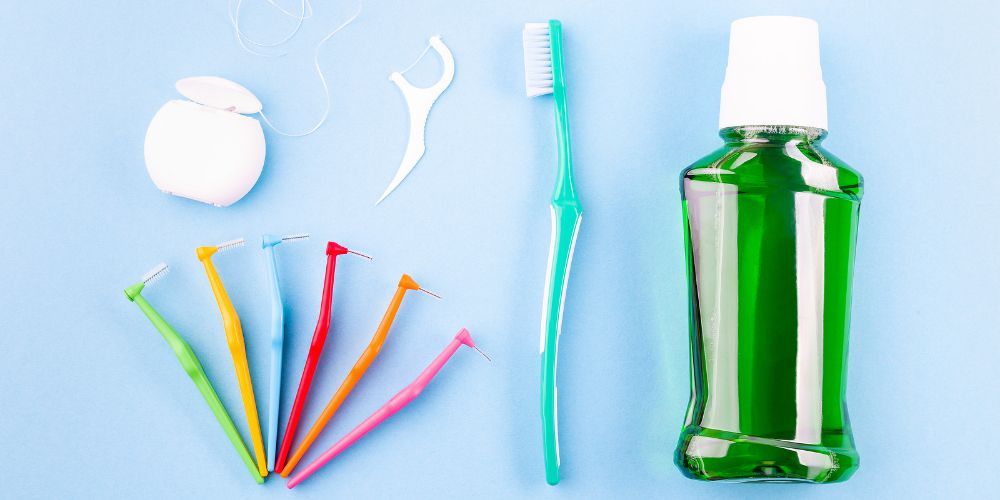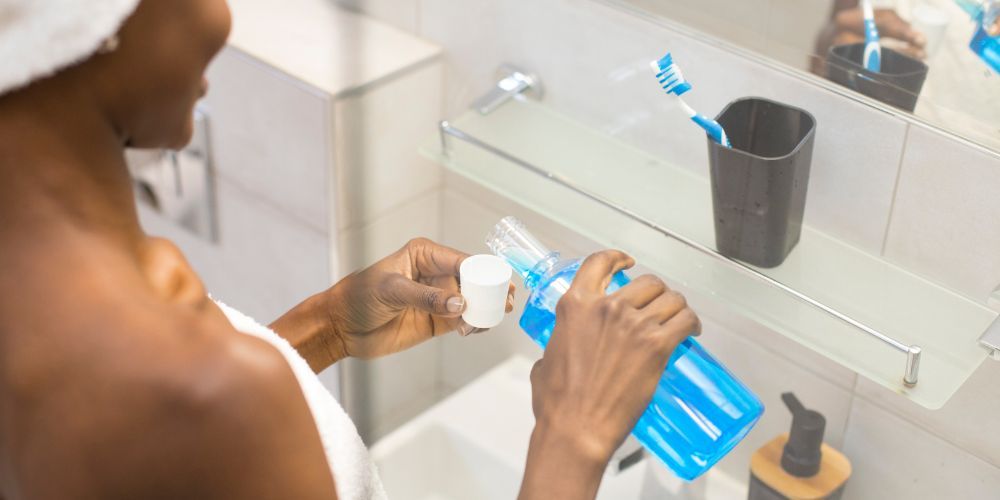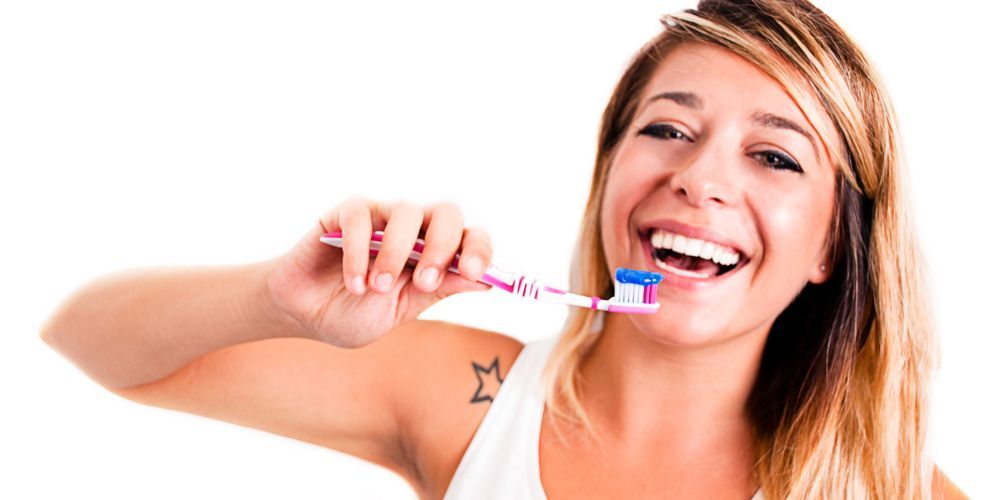In This Article
This post may contain affiliate links, please see our privacy policy for details.
We all know that brushing and flossing are important for keeping our teeth healthy. But what about mouthwash? Does it make a difference if you use it before or after you brush your teeth? Let's take a closer look at the role of mouthwash in fighting plaque.
The Answer to The Question of Whether Mouthwash Should Come First or Last in Your Oral Care Routine May Surprise You
Determining the most effective way to clean and protect your teeth can feel like a complex science experiment at times. Go too hard on the toothbrush and you risk enamel erosion, but let bacteria sit too long and you might as well kiss your smile goodbye.
With so much advice flying around about when to floss, brush, and use mouthwash, it can be easy to forget one simple truth: the answer to the big question of which goes first--mouthwash or brushing --may not actually come as a surprise.

While research suggests rinsing before brushing can help with plaque removal, simply using mouthwash both before AND after brushing will ensure maximum results. The combination helps remove oral bacteria and freshen your breath in one easy step.
So if you're ever wondering which order you should follow for your oral care routine, don't overthink it; employing the double-whammy approach of before and after brushing is an easy way to guarantee those pearly whites stay healthy for years to come.
There Are Pros and Cons to Using Mouthwash Before or After Brushing Your Teeth
When it comes to taking the perfect care of your teeth, it's easy to feel a little overwhelmed.
With so much advice on what needs to be done when and in which order, it can all seem like a bit of a chore. But perhaps the most contentious topic of debate is whether you should be using mouthwash before or after you brush your teeth and floss - arguments abound on both sides!

On the one hand, proponents of mouthwash-as-last-resort feel that washing out with antiseptic first means that all the hard brushing work gets washed away – and the cleaning process starts from close to square one.
On the other hand, those who prefer rinsing with mouthwash first point out that this can target any hard-to-reach spots before using the brush and floss.
Ultimately, it comes down to personal preference, but for sure there are pros and cons for either approach – something for everyone to think about as they go about their daily dental hygiene routine!
Ultimately, It's Up to You to Decide What Works Best for Your Oral Care Routine
When it comes to your oral care routine, times have changed. Gone are the days of vigorously brushing your gums until they're tender and gum massages with pointy sticks - for both better and worse.
While there are plenty of options now for improving our dental hygiene, the decision is ultimately ironclad: it's up to you how to look after those pearly whites.

The good news is, the possibilities are virtually endless - from regular flossing with waxed dental tape to weekly rinses with eco-friendly mouthwash. No matter which route you decide to go down, make sure you're forming a habit that works for you and if something isn't working out, try something else!
Chances are you'll find something that does the trick. After all, having healthy teeth is an investment worth making. Your smile says a lot about who you are so don't forget to show it off when the opportunity arises!
Better yet, let's make it a point to give our mouths ample love this year! Anything is possible when taking one toothbrush at a time.
Here Are a Few Things to Keep in Mind When Making Your Decision
When it comes to making decisions, the most important thing you can do is consider all of the information available. From weighing your options to researching the potential outcomes, thoughtful investigation can help you come to a decisive conclusion.
Additionally, it's good practice to think about how your decision will affect those around you. Keep in mind that not every decision is black and white; understanding the grey area can be just as beneficial when navigating tricky choices.
Before committing to anything, a period of self-reflection is essential. Ask yourself questions and take momentary pauses between each one so you learn as much as possible before concluding.
Ultimately, the best way to make your decision is by being informed, thoughtful and reflective. Doing so can provide the clarity necessary for any life-altering choice.
Try out Different Techniques and See What Gives You the Best Results!
When it comes to oral care, you don't have to find one size fits all. Trying out different techniques and seeing what works best for you can help you get the best results.
Whether your oral care routine includes brushing two or three times a day, using floss or toothpicks, adding mouthwash to the mix, or trying special liquids that dissolve plaque, there are lots of possibilities.
Experimenting with your oral hygiene also helps you learn about different textures for oral care products -- like soft bristles for brushes and waxed floss. Nobody wants their pearly whites to become stained and discolored!
Put on your scientist's cap and give new oral care techniques a try -- you could be pleasantly surprised by the results! With a little bit of experimentation and the right oral care routine, healthy teeth and gums are within reach. After all, prevention is key.
What have you got to lose? You never know until you try! So give different oral care techniques a whirl –– arm yourself with knowledge and do what's best for your oral health! Happy brushing! It's time to get creative with oral hygiene!
Final Thoughts
So, should mouthwash come first or last in your oral care routine? The answer may surprise you. There are pros and cons to using mouthwash before or after brushing your teeth, and it ultimately comes down to what works best for you. Here are a few things to keep in mind when making your decision: try out different techniques and see what gives you the best results!










